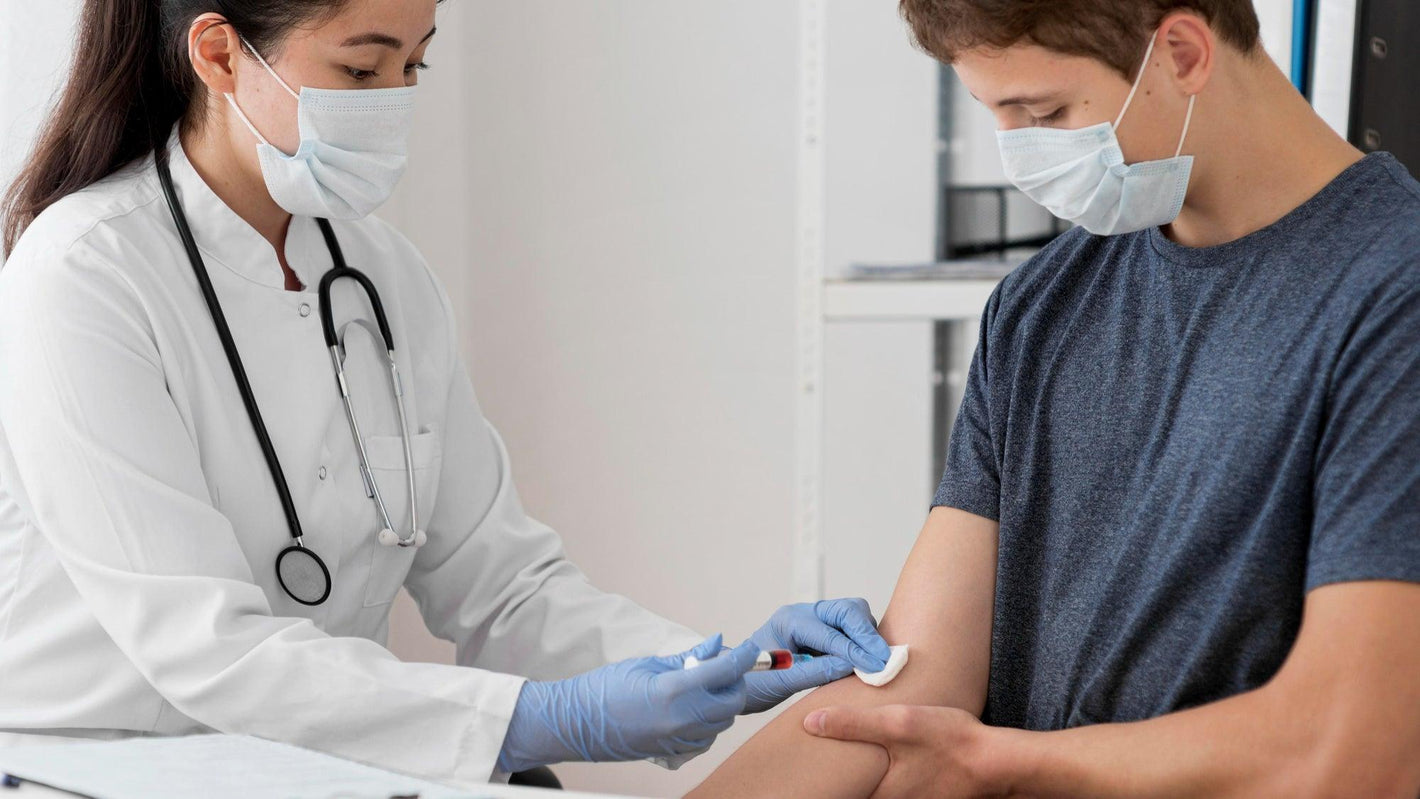Can a Blood Test Check for Erectile Dysfunction?



Also known as impotence, erectile dysfunction (ED) is a common condition affecting millions of men worldwide. It refers to the inability to maintain or achieve an erection sufficient for sexual intercourse. ED can have several different causes, including physical and psychological issues.
Many men with ED have one question: whether or not it is possible to diagnose the condition with a blood test. Here, we will learn about the role of blood tests in diagnosing ED and whether or not they can be used to check for the condition effectively.
The short answer is that blood tests can help diagnose the causes of ED, but they are not the only tool doctors use to diagnose the condition. There is no single "test" for ED. The diagnosis is typically made based on a combination of factors, including a patient's medical history, physical examination, and laboratory testing.
Your medical and sexual history is essential when evaluating the cause of your erectile dysfunction. Your physician will want to know if you have been able to achieve an erection before and whether you can do so now. They may also ask about your lifestyle habits and any medications you currently take.
Blood tests can help diagnose ED because they can help identify underlying medical conditions contributing to the problem. For example, high levels of certain hormones or markers of inflammation in the blood can signify that a person has an underlying medical condition contributing to their ED.
Additionally, blood tests can be used to determine the cause of ED, such as low testosterone levels or high cholesterol. These conditions can often be treated with medication or lifestyle changes, which may help to improve a patient's ability to achieve and maintain an erection.
Welzo offers an Erectile Dysfunction blood test here
Erectile dysfunction (ED) is a common condition defined as the inability to maintain or achieve an erection sufficient for sexual intercourse.
Problems with the penile nerves can cause erectile dysfunction (ED). Several health conditions can damage the nerves that supply the penis, including diabetes, multiple sclerosis, pelvic surgery, and spinal cord injuries.
Other causes of erectile dysfunction include physical conditions, such as cardiovascular disease, heart disease, high blood pressure, and obesity, and psychological reasons, such as stress, anxiety, and depression. In some cases, ED may be caused by a combination of physical and psychological factors.
In addition, a urinary tract infection (UTI) can also cause or contribute to ED by causing inflammation and irritation in the urinary tract, which can lead to discomfort and pain during sexual activity. Certain medications used to treat UTIs, such as certain antibiotics, can also have side effects that can affect sexual function and impact a healthy sex life. In some cases, treating the UTI may help to improve ED.
Signs and symptoms of ED may include:
Difficulty achieving an erection
Inability to maintain an erection
Decreased sexual desire
Troublesome ejaculation
Learn more: Read about Erectile Dysfunction on the Welzo Health Hub.

In addition to blood tests, medical practitioners may use many other methods to diagnose ED.
A doctor may check for physical signs of ED, such as poor circulation or nerve damage. They may also ask about a patient's medical history, including any medications they are taking or underlying medical conditions they may have.
Psychological issues can sometimes cause ED. A psychological evaluation can help to identify any related problems to ED.
It includes injecting a small amount of a special dye into the penis. The dye helps to highlight any problems with blood flow to the penis, which can be a sign of ED.
This test utilizes sound waves to generate an image of the inside of the penis. It can help identify problems with blood flow or the structure of the penis itself.
Read more: Alternative treatments for erectile dysfunction.
Erectile dysfunction (ED) is typically treated with a combination of medications, lifestyle changes, and psychological counselling.
Several medications are effective in treating ED. These include:
Phosphodiesterase inhibitors, such as sildenafil (Viagra) and tadalafil (Cialis), relax the muscles in the penis and increase blood flow to the area.
Alprostadil can be injected into the penis or inserted into the urethra as a pellet. It potentially increases blood flow to the penis and can be used to achieve an erection.
Testosterone replacement therapy, in cases where low testosterone levels cause ED. Learn more about hormone replacement therapies here.
Find more medication options for treating ED here.
Making specific lifestyle changes can also help to improve ED. These may include:
Lose weight.
Exercise regularly to improve circulation and help to maintain healthy blood pressure levels.
Drink alcohol in lesser amounts and frequency.
In cases where psychological issues cause ED, psychological counselling may be recommended. A therapist can help to identify and address the underlying causes of the ED and develop strategies for coping with these issues.
It is beneficial to remember that ED is a common and treatable condition. If you are experiencing ED, speak to your doctor to determine the most appropriate treatment options.
Read more: What's the best Viagra for men?
While blood tests can help diagnose the causes of ED, they are not the only tool doctors use to diagnose the condition. Other methods, such as physical examination, psychological evaluation, and specialized tests like penile injections and penile duplex ultrasonography, may also be used to diagnose ED.
If you are experiencing problems with your ability to attain or maintain an erection, it is essential to talk to a healthcare professional. They can recommend the most appropriate treatment options.
If you're looking for an erectile dysfunction blood test, Welzo offers a comprehensive ED screen, available here.










Plus get the inside scoop on our latest content and updates in our monthly newsletter.